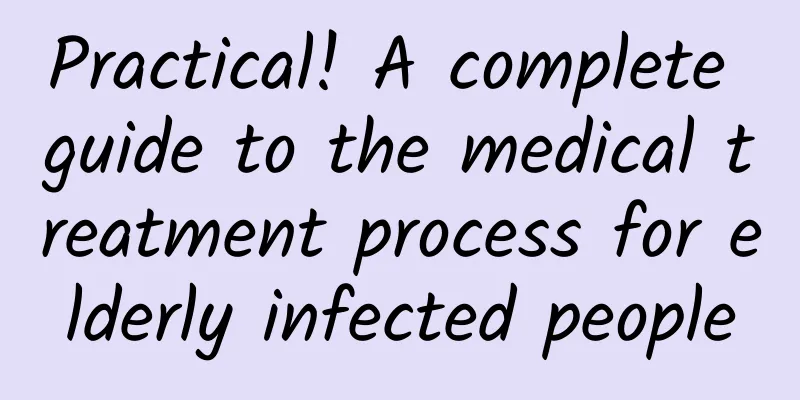Will I still ovulate after my menopause?

|
Women will go through menopause when they reach a certain age, and after menopause, they will generally stop menstruating, which is a period that all women go through. Women will feel very uncomfortable physically during the period just after menopause, and their mood will also be more irritable, so women should pay attention to rest and adjust their emotions in time. So, will women still ovulate after menopause? Can you still get pregnant after menopause? Amenorrhea does not lead to pregnancy. Generally, if you don't ovulate after menopause, you won't get pregnant. But in reality, the decline of ovarian ovulatory function does not mean complete anovulation, especially in the early stage of menopausal transition, ovulation cycles are still common and are gradually replaced by anovulatory cycles. Due to the decline of ovarian function, the original ovulation pattern is disrupted, the ovulation time is difficult to predict, and it is even possible that ovulation occurs more than once in a month. Therefore, pregnancy is still possible in the first few years of menopause, including within one year after menopause. If you don’t want to receive an “unexpected surprise”, it is recommended that menopausal women should still take contraceptive measures. Common complications after amenorrhea 1. Senile vaginitis. The ovaries of normal women of childbearing age secrete estrogen, which causes the vaginal mucosal epithelium to proliferate and thicken, and has strong antibacterial ability. After menopause, women's ovarian function declines, estrogen levels decrease, glycogen content in epithelial cells decreases, and the pH value in the vagina rises, changing from acidic to alkaline, which is not conducive to the survival of lactobacilli in the vagina, resulting in a weakening of the vagina's self-cleaning function. At the same time, due to the atrophy and thinning of the vaginal wall and insufficient blood supply, local resistance is reduced, making it easy to be infected by other parasitic bacteria in the vagina, causing senile vaginitis. It is often caused by common pathogenic bacteria, such as Staphylococcus, Streptococcus, Escherichia coli or anaerobic bacteria. 2. Osteoporosis. After menopause, estrogen deficiency can cause increased bone absorption, intestinal calcium absorption disorders, decreased calcitonin secretion, reduced bone formation and weakened inhibitory effect on osteoclasts, resulting in increased bone loss. Starting from the menopausal transition period, the average annual bone loss rate is 1% to 3%, or even 5%, which lasts for 5 to 10 years. Then the bone mass is relatively stable, with less loss for about 10 to 20 years. After the age of 70, bone loss accelerates again with aging. 3. Osteoarthritis. The loss of sex hormone protection and abnormal levels of related cytokines in menopausal women play an important role in the pathogenesis of osteoarthritis. Postmenopausal hormone replacement therapy (HRT) has a certain effect on alleviating the pain symptoms of knee osteoarthritis. Whether a woman can still get pregnant after menopause depends mainly on whether her body is still ovulating. Some women will ovulate after menopause, so there is a possibility of pregnancy. Therefore, it is recommended that if women want to have sexual intercourse during the period just after menopause, they should take contraceptive measures to avoid the risk of unwanted pregnancy. |
<<: Does estrogen make breasts bigger?
>>: Is it normal to stop menstruating at 40?
Recommend
What to eat for breast enlargement
Maybe many female friends are born with underdeve...
Breast tenderness during ovulation
If a woman experiences breast pain, she does not ...
How to dispel my husband's suspicion
In life, many women will find that their husbands...
What should I do if I have dull pain in my lower abdomen and leucorrhea with blood?
Many women may experience symptoms of vaginal ble...
Is it serious if I haven't had my period for 3 months?
Generally speaking, if the menstrual period has n...
Why do I have leucorrhea after having an abortion?
Nowadays, many young men and women may get the wo...
Why does milk coagulate after heating? Can papaya milk still be eaten if it coagulates and turns bitter?
There are two ways to preserve milk on the market...
The three best times to conceive
Some people have been preparing for pregnancy for...
Can I take detoxifying and beauty capsules after having an abortion?
Nowadays, as people pay more attention to their a...
How long does it take for the scab to fall off semi-permanently
Semi-permanent eyebrow tattooing is a relatively ...
Unintelligent "smart drugs", back off! Back off! Back off!
"Take one pill before the exam, and you'...
What to do if pregnant women have high glycosylated hemoglobin
Pregnant women are the greatest creatures in the ...
Vulvar itching after episiotomy
In order for their children to be born healthy, m...
Can the intestines also have a stroke? What are the signs of an acute attack?
When we talk about stroke, we usually think of br...









